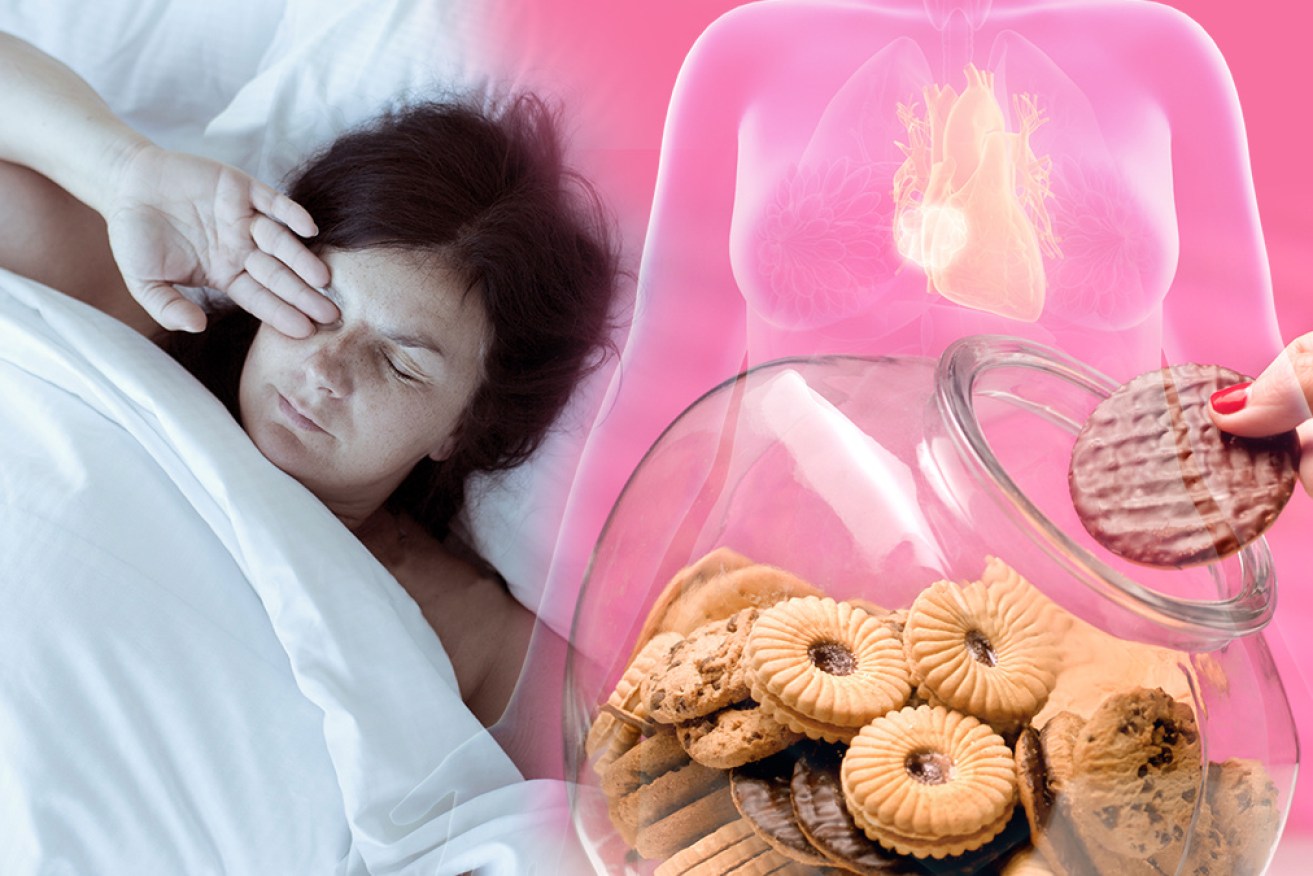Can’t beat your sugar cravings? Start by getting more sleep


A new study has found links between poor sleep quality and a high-junk food diet. Photo: Getty/TND
People who frequently reach for a chocolate biscuit over an apple might not be getting enough sleep, researchers say.
In a study published in the Journal of the American Heart Association, researchers examined the links between sleep quality and the junk food intake of nearly 500 women.
The study found the less the women slept, the more they ate food with added sugars, like donuts or lollies, or with saturated fats, like lamb kebabs and pastries.
The women were also prone to drinking more coffee or eating caffeine-packed snacks like chocolate, the researchers from Columbia University’s Irving Medical Centre (CUIMC) found.
The participants, aged between 20 and 76, were part of a year-long study of sleep patterns and cardiovascular risk in women.
High-fat, high-sugar foods are linked to other serious health conditions like type 2 diabetes and heart disease.
What came first, the chicken or the egg?
Aside from the obvious risk of obesity, eating sugary foods also makes it harder to fall asleep – and stay asleep for longer.
This is one of the reasons why it is so difficult to break the cycle.
During the year-long study, the women regularly filled out questionnaires detailing how often they ate certain foods, as well as their portion size.
More than a third of the women said they suffered poor sleep quality or some level of insomnia. The average sleep time among the women was less than seven hours. Nearly one quarter slept less than seven hours per night but also struggled with insomnia.
The recommended amount of sleep for adults is between seven and nine hours.
Dr Brooke Aggarwal, a senior author of the study and assistant professor of medical sciences at CUIMC, said sleep-related problems were common among women, especially at times when our bodies were changing.
“We chose to study sleep in particular because women are vulnerable to the effects of lack of sleep at various points in their lives: pregnancy, new motherhood, menopause and post-menopause, and caring for an ailing spouse,” Dr Aggarwal said.
“Our research is aimed at understanding how lack of sleep increases cardiac risk among women.”

Eating fatty foods can give you a quick boost of energy, but it might make it harder for you to fall sleep. Photo: Getty
Why do we crave junk food when we’re tired?
A bad night’s sleep might lead to unhealthy eating habits because tiredness is believed to stimulate hunger, the researchers said.
A lack of sleep also suppresses hormone signals that are designed to tell our brain when we are full.
Over time, insomnia can affect activity in a part of the brain called the hippocampus that controls memory, motivation and food intake.
These changes could have “downstream effects on eating behaviours,” the study said.
“It’s previously been shown that when we are sleep deprived, or we don’t get good quality sleep, our hormones can actually stimulate hunger,” Dr Aggarwal said.
“The ones that regulate suppression of hunger and fullness and satiety can be off balance.”








